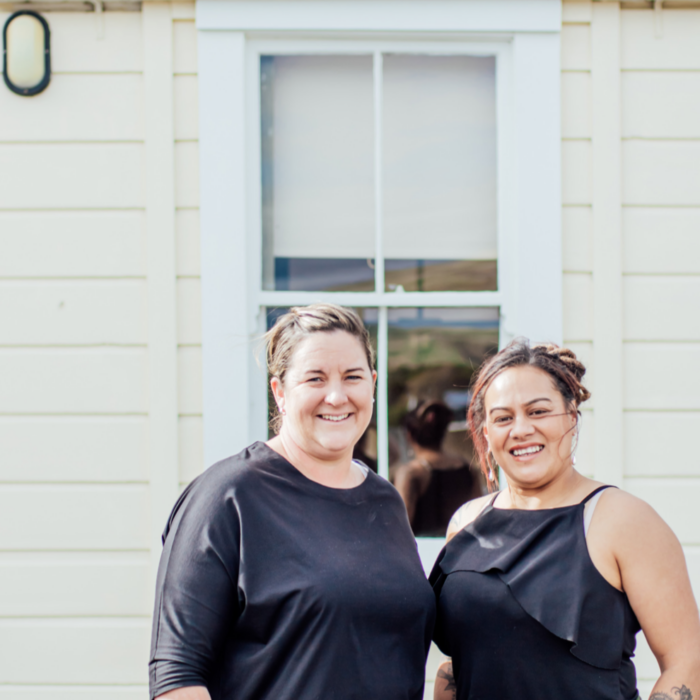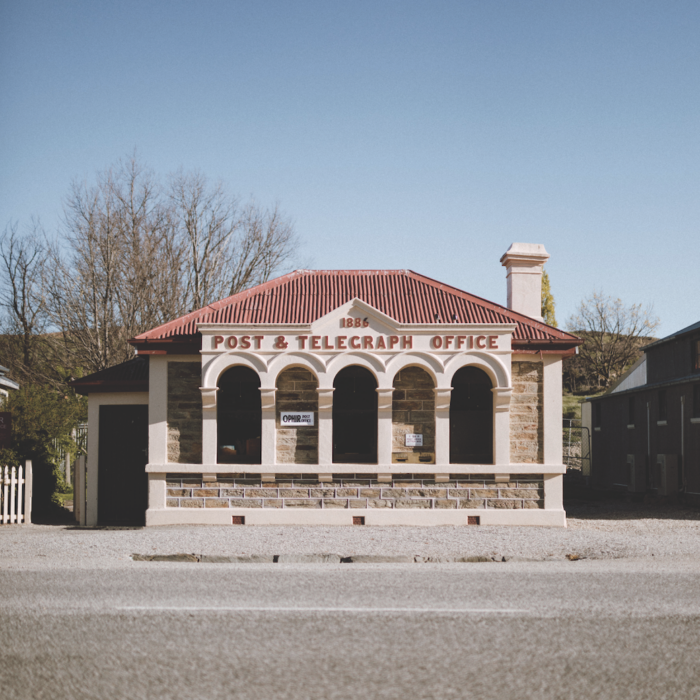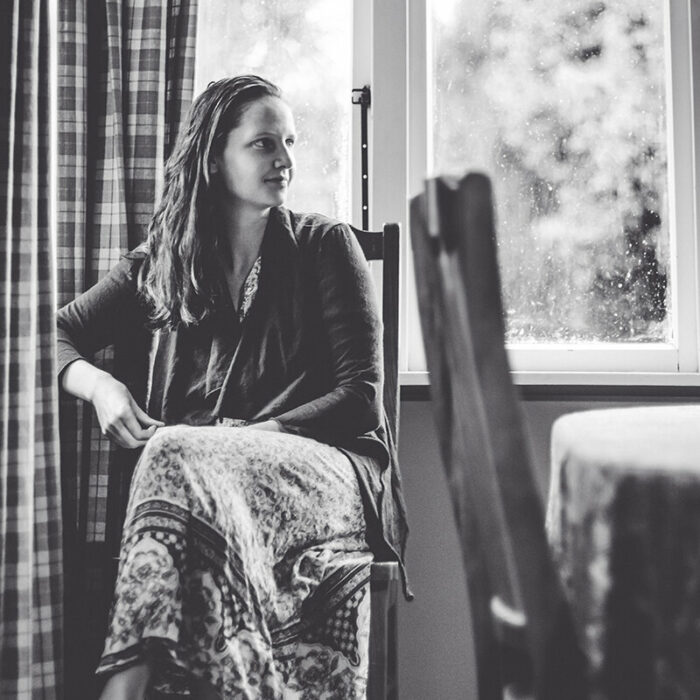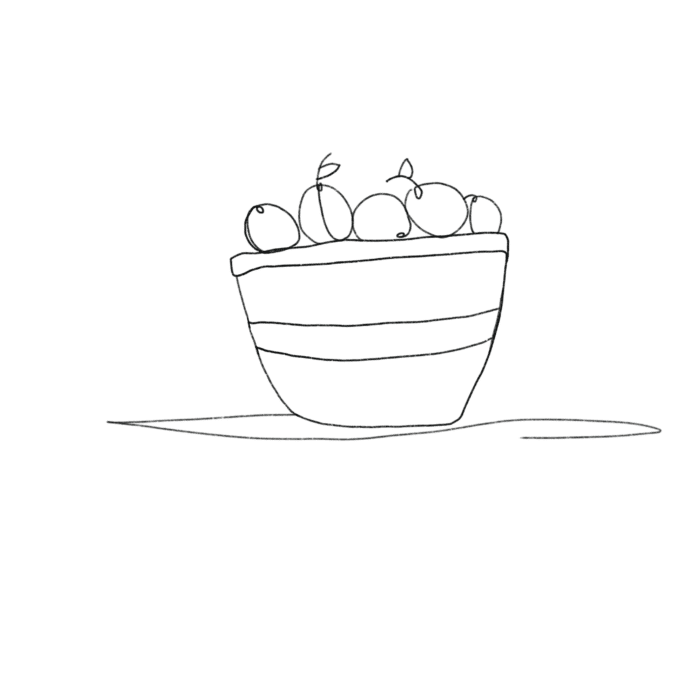
I’m fortunate enough to have walked my journey through life with a foot in te ao Māori and a foot in te ao Pākehā. My Dad is Pākehā and we grew up in his hometown, a little place called Ohai down in Western Southland. Mum moved down from the Bay of Plenty when she was nineteen or twenty, and although she was so young and so far from home she was still really connected to her Māoritanga. She had aunties and uncles who had shifted south with the shearing boom, so we were always surrounded by our cousins and extended whānau.
Mum and Dad met in the shearing sheds and then Dad went shepherding and us kids were always tagging along with him. I got my first job delivering newspapers when I was about twelve, and school holidays were always spent helping Dad down at Mount Linton Station before I started working as a woolhandler. By the time I was nineteen I was working four different jobs: as a painter, cooking for the guys at Mount Linton, working weekends in a pub and doing some calf rearing for a dairy farming couple nearby.
I stumbled into the dairy industry when they told me they’d converted a new 1,200-cow farm and needed a farm assistant, and asked if I wanted to go and work for them full time. I took that opportunity, although it took me a little while to get into it. Once I started doing Primary ITO training courses I got to understand more about what we were doing on farm and it planted the seed for me to see it as more of a career path. That’s when I really started defining my “why.” I worked really hard on defining what my values are, so I can always ensure I am staying true to them. I am passionate about seeing our rangatahi thrive in food and fibre production, being reconnected with their whenua, and sustaining themselves and their whānau.
When I looked deeper, I realised the issue I wanted to fix was poverty. We have so many people who are looking for job opportunities, and within the sector we are always talking about jobs needing to be filled. I want to be part of bringing our people back to the land and ensuring they have the capabilities to better themselves and their whānau.
I moved to Canterbury in 2016 and spent a couple of years working as assistant manager on two different properties. Unfortunately, my confidence took a hit when I took on a role as manager at a very isolated place up in Culverden. One of my mentors helped me brainstorm what we could do to help my wairua and tinana heal and we landed on the decision for me to go to Lincoln University to study agribusiness. I had never even thought of university as an option for me, and I still don’t think of myself as the ideal student, but I’ve always had a good work ethic and can stick at things once I put my mind to them. While I was studying I was fortunate enough to get a job on a farm just off campus where I did some calf rearing and became the young stock manager. Seeing the young stock come into the herd and feeling responsible for how well they were doing was really cool and helped build my passion for the industry I’d lost.
My studies helped hone my focus and last year I threw my hat in the ring for a Māori agribusiness role at DairyNZ. Although I didn’t get it, they created a new role of Graduate Māori Relationship Partner, and allowed me to start working part time while I finished my degree. I love working with our Māori farmers and finding out what they need, and how we can support them. In the front of my mind has always been our intrinsic connection to our whenua and ensuring it’s in a really good space for future generations. A lot of our trustees are “looking back to move forward,” trying to learn from our history to make the best decisions for the future.
I want to concentrate on our rangatahi, what’s best for them, what they want to do. It was fitting that the Food and Fibre Youth Network launched last year. I was fortunate enough to get a spot on the council and was humbled to be elected as chair. Our role is to work as a pipeline for rangatahi to learn about the sector, and to have a voice at the national level about the future of our industries. We had sixty-one applicants for the Food and Fibre Youth Council. When you’ve got that many young people in the sector wanting to be in leadership roles, it’s just amazing. It bodes well for our future.
Glossary. Māoritanga, one’s connection to their culture and heritage. Rangatahi, youth. Te ao Māori, the Māori world. Te ao Pākehā, the Western world. Tinana, physical body. Wairua, spirit. Whānau, family. Whenua, land.
Related Stories
Kate & Koko
Kate and Koko run the recently established Station Cafe in Seddon, and the tight-knit community here has embraced their warmth and hospitality.
Ophir
Val Butcher, 81, the postmistress of the country’s oldest continuously running postal service, shares her memories of cold winters and fitting cabbages into postboxes.
Op-Shop Treasure in Ōtautahi
A chance to flee the confines of our suburban Richmond home to remote Cape Foulwind in Buller ignited a fire in my husband, Rowan, and me. The windswept coastline and
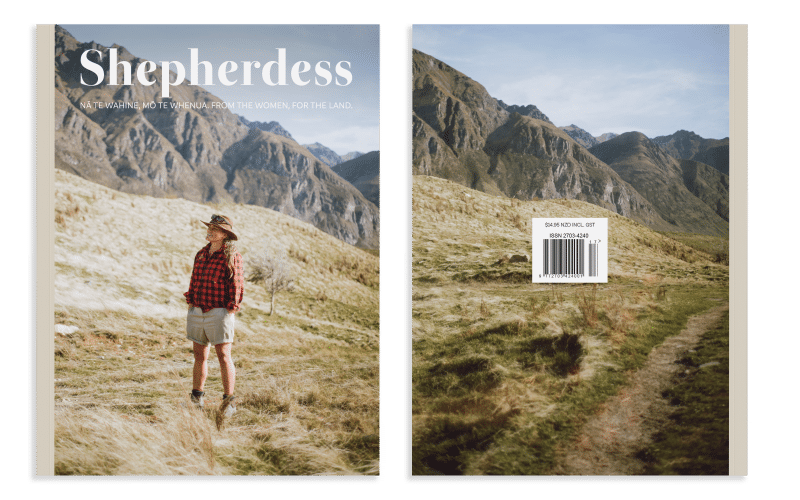
Out Now
Seventeenth Edition
Our beautiful Ngahuru Autumn 2024 Edition is out now!
